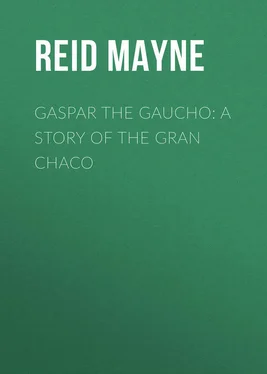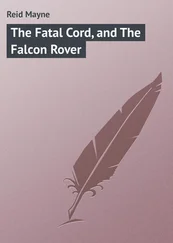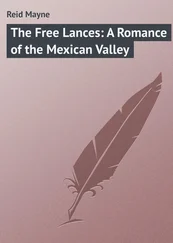Mayne Reid - Gaspar the Gaucho - A Story of the Gran Chaco
Здесь есть возможность читать онлайн «Mayne Reid - Gaspar the Gaucho - A Story of the Gran Chaco» — ознакомительный отрывок электронной книги совершенно бесплатно, а после прочтения отрывка купить полную версию. В некоторых случаях можно слушать аудио, скачать через торрент в формате fb2 и присутствует краткое содержание. Жанр: literature_19, foreign_antique, foreign_prose, на английском языке. Описание произведения, (предисловие) а так же отзывы посетителей доступны на портале библиотеки ЛибКат.
- Название:Gaspar the Gaucho: A Story of the Gran Chaco
- Автор:
- Жанр:
- Год:неизвестен
- ISBN:нет данных
- Рейтинг книги:3 / 5. Голосов: 1
-
Избранное:Добавить в избранное
- Отзывы:
-
Ваша оценка:
- 60
- 1
- 2
- 3
- 4
- 5
Gaspar the Gaucho: A Story of the Gran Chaco: краткое содержание, описание и аннотация
Предлагаем к чтению аннотацию, описание, краткое содержание или предисловие (зависит от того, что написал сам автор книги «Gaspar the Gaucho: A Story of the Gran Chaco»). Если вы не нашли необходимую информацию о книге — напишите в комментариях, мы постараемся отыскать её.
Gaspar the Gaucho: A Story of the Gran Chaco — читать онлайн ознакомительный отрывок
Ниже представлен текст книги, разбитый по страницам. Система сохранения места последней прочитанной страницы, позволяет с удобством читать онлайн бесплатно книгу «Gaspar the Gaucho: A Story of the Gran Chaco», без необходимости каждый раз заново искать на чём Вы остановились. Поставьте закладку, и сможете в любой момент перейти на страницу, на которой закончили чтение.
Интервал:
Закладка:
So far the elders in council; and the astute commissioner, recognising the difficulty, not to say danger, of touching on this delicate subject, said nothing to them about it.
For all, he has not left the matter in abeyance, instead, has spoken of it to other ears, where he knew he would be listened to with more safety to himself – the ears of Aguara. For he had not been long in the Tovas town without making himself acquainted with the character of the new cacique, as also his inclinings – especially those relating to Francesca Halberger. And that some private understanding has been established between him and the young Tovas chief is evident from the conversation they are now carrying on.
“You can keep the muchachita at your pleasure,” says Valdez, having, to all appearance, settled certain preliminaries. “All my master wants is, to vindicate the laws of our country, which this man Halberger has outraged. As you know yourself, Señor Aguara, one of our statutes is that no foreigner who marries a Paraguayan woman may take her out of the country without permission of the President – our executive chief. Now this man is not one of our people, but a stranger — a gringo – from far away over the big waters; while the Señora, his wife, is Paraguayan, bred and born. Besides, he stole her away in the night, like a thief, as he is.”
Naraguana would not tamely have listened to such discourse. Instead, the old chief, loyal to his friendship, would have indignantly repelled the allegations against his friend and protégé. As it is, they fall upon the ear of Naraguana’s son without his offering either rebuke or protest.
Still, he seems in doubt as to what answer he should make, or what course he ought to pursue in the business between them.
“What would you have me do, Señor Rufino?” he asks in a patois of Spanish, which many Chaco Indians can speak; himself better than common, from his long and frequent intercourse with Halberger’s family. “What want you?”
“I don’t want you to do anything,” rejoins the vaqueano . “If you’re so squeamish about giving offence to him you call your father’s friend, you needn’t take any part in the matter, or at all compromise yourself. Only stand aside, and allow the law I’ve just spoken of to have fulfilment.”
“But how?”
“Let our President send a party of his soldiers to arrest those runaways, and carry them back whence they came. Now that you’ve proposed to renew the treaty with us, and are hereafter to be our allies – and, I hope, fast friends – it is only just and right you should surrender up those who are our enemies. If you do, I can say, as his trusted representative, that El Supremo will heap favours, and bestow rich presents on the Tovas tribe; above all, on its young cacique – of whom I’ve heard him speak in terms of the highest praise.”
Aguara, a vain young fellow, eagerly drinks in the fulsome flattery, his eyes sparkling with delight at the prospect of the gifts thus promised. For he is as covetous of wealth as he is conceited about his personal appearance.
“But,” he says, thinking of a reservation, “would you want us to surrender them all? Father, mother – ”
“No, not all,” rejoins the ruffian, interrupting. “There is one,” he continues, looking askant at the Indian, with the leer of a demon, “one, I take it, whom the young Tovas chief would wish to retain as an ornament to his court. Pretty creature the niña was, when I last saw her; and I have no doubt still is, unless your Chaco sun has made havoc with her charms. She had a cousin about her own age, by name Cypriano, who was said to be very fond of her; and rumour had it around Assuncion, that they were being brought up for one another.”
Aguara’s brow blackens, and his dark Indian eyes seem to emit sparks of fire.
“Cypriano shall never have her!” he exclaims in a tone of angry determination.
“How can you help it, amigo?” interrogates his tempter. “That is, supposing the two are inclined for one another. As you know, her father is not only a paleface, but a gringo , with prejudices of blood far beyond us Paraguayans, who are half-Indian ourselves. Ah! and proud of it too. Being such, he would never consent to give his daughter in marriage to a red man – make a squaw of her, as he would scornfully call it. No, not even though it were the grandest cacique in the Chaco. He would see her dead first.”
“Indeed!” exclaims the Indian, with a disdainful toss of the head.
“Indeed, yes,” asseverates Valdez. “And whether they remain under your protection, or be taken back to Paraguay, ’twill be all the same as regards the señorita. There’s but one way I know of to hinder her from becoming the wife of her cousin Cypriano, and that is – ”
“What?” impatiently asks Aguara.
“To separate them. Let father, mother, son, and nephew be taken back to where they belong; the niña to stay behind.”
“But how can that be done?”
“You mean without your showing your hand in it?” asks Valdez, in a confidential whisper.
“I do. For know, Señor Rufino, that, though I’m now chief of our tribe, and those we have with us here will do as I bid them – obey me in anything – still the elders have control, and might make trouble if I did aught to injure the friend of my late father. I am not free, and dare not act as you propose.”
“ Carramba ! you needn’t act at all, as I’ve already told you. Only stand aside, and let others do the acting. ’Twill be easy enough. But give your consent to my bringing a pack of our Paraguayan wolves to this fold your father has so carefully shepherded, and I’ll answer for sorting out the sheep we want to take, and leaving the lamb you wish left. Then you and yours can come opportunely up, too late for protecting the old ram and dam, but in time to rescue the bleating lambkin, and bear her away to a place of safety. Your own toldo, Señor Aguara; where, take my word for’t, no one will ever come to inquire after, much less reclaim her. You consent?”
“Speak low!” cautions the wily Indian, casting a glance over his shoulders as one willing to do a wicked deed, but without desiring it known. “Don’t let them hear us. You have my consent .”
Chapter Nine.
A Red-Handed Ruffian
Just as the young cacique has yielded to the tempter, surrendering his last scruple of conscience, his horse dips hoof in the stream, that of the Paraguayan plunging into it at the same time. Knowing the ford well, and that it is shallow, with a firm bottom, they ride boldly on; their followers straggled out behind, these innocent of the foul conspiracy being hatched so near; still keeping up their rollicky mirth, and flinging about jeux d’esprit as the spray drops are tossed from the fetlocks of their wading horses.
It is a popular though erroneous belief, that the red men of America are of austere and taciturn habit. The older ones may be at times, but even these not always. Instead, as a rule they are given to jocularity and fun; the youth brimful of it as the street boys of any European city. At least one half of their diurnal hours is spent by them in play and pastimes; for from those of the north we have borrowed both Polo and La Crosse; while horse-racing is as much their sport as ours; and archery more.
Not strange, then, that the jeunesse dorée of the Tovas, escorting their youthful cacique, and seeing him occupied with the paleface who has been on a visit to their town, take no heed of what passes between these two, but abandon themselves to merriment along the march. No more is it strange that Aguara, engrossed with the subject of conversation between him and the vaqueano , leaves them free to their frollicking.
Читать дальшеИнтервал:
Закладка:
Похожие книги на «Gaspar the Gaucho: A Story of the Gran Chaco»
Представляем Вашему вниманию похожие книги на «Gaspar the Gaucho: A Story of the Gran Chaco» списком для выбора. Мы отобрали схожую по названию и смыслу литературу в надежде предоставить читателям больше вариантов отыскать новые, интересные, ещё непрочитанные произведения.
Обсуждение, отзывы о книге «Gaspar the Gaucho: A Story of the Gran Chaco» и просто собственные мнения читателей. Оставьте ваши комментарии, напишите, что Вы думаете о произведении, его смысле или главных героях. Укажите что конкретно понравилось, а что нет, и почему Вы так считаете.












